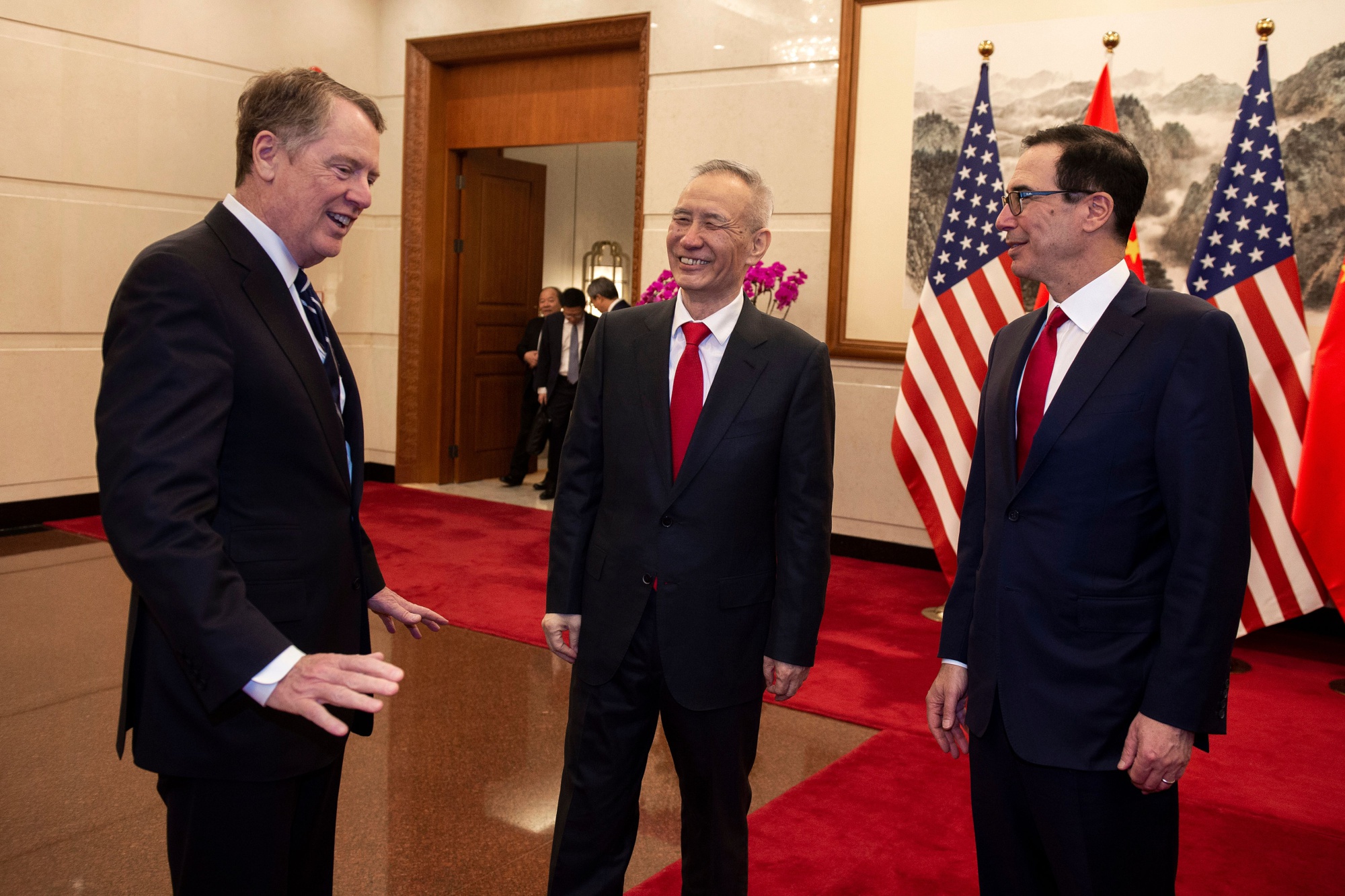
- Reuters reports: "Top U.S. and Chinese negotiators will meet face-to-face next week for the first time since the countries' leaders agreed in June to revive talks aimed at ending a yearlong trade war between the world's two largest economies. The United States and China have been embroiled in a tit-for-tat tariff battle, roiling global supply chains and upending financial markets, as Washington presses Beijing to address what it sees as decades of unfair and illegal trading practices. U.S. Treasury Secretary Steven Mnuchin and U.S. Trade Representative Robert Lighthizer will lead a team of American officials in discussions in Shanghai on Tuesday, July 30, 'aimed at improving the trade relationship between the United States and China,' the White House said in a statement on Wednesday. Chinese Vice Premier Liu He will lead negotiations for China."
- The Wall Street Journal reports: "China's push to gain a bigger foothold in U.S. public transit systems could derail in Congress, which is moving to bar the use of federal funds to buy Chinese buses and railcars. The effort threatens to further fray U.S. trade talks with China, which wants to become a global player in transport and is already fuming over the U.S. decision to blacklist telecommunications giant Huawei Technologies Co. Advocates said the ban is needed to protect a U.S. industry from subsidized Chinese competition. They also claim cameras, location trackers and other gear in Chinese buses and trains could provide surveillance and strategic information to China's authoritarian government. 'It's in the national interest to make sure we have viable rail and bus industries and to protect us from spying and sabotage of our public transportation system,' Rep. Harley Rouda (D., Calif.) said."
The Washington Post reports, "China sharpened its hostility toward the United States and Taiwan in a new high-level report on its future military strategy, which accused Washington and its allies of undermining global stability. Releasing the document on Wednesday, officials of the People's Liberation Army repeatedly warned that Beijing would be willing to deploy military force to assert its claims over Taiwan. The self-ruled island has pulled closer to the Trump administration and agreed this month to buy $2.2 billion in weapons, including M1A2T Abrams tanks and Stinger missiles. Taiwan's ruling Democratic Progressive Party favors declaring formal independence from China, a move that could spark confrontation in the Taiwan Strait, one of the world's most heavily militarized flash points. China's navy this month sailed its sole aircraft carrier into the strait in a show of force reminiscent of similar U.S. operations two decades ago that showcased American military dominance in Asia."
- 2019-07-23 Trump Agrees to Timely Decisions on Huawei as China Talks Near
- 2019-07-22 Chinese Money in the U.S. Dries Up as Trade War Drags On
- 2019-07-21 Chinese Money in the US Dries Up as Trade War Drags On
- 2019-07-19 U.S., China Trade Negotiators Talk for Second Time Since Truce
- 2019-07-18 U.S.-China trade talks continue, in-person meeting may be planned: Mnuchin
- 2019-07-17 Bills targeting China's Huawei introduced in Congress
- 2019-07-16 Tariffs on China Don’t Cover the Costs of Trump’s Trade War
- 2019-07-15 China posts slowest economic growth in 27 years; Trump touts ‘major effect’ of tariffs
- 2019-07-14 Huawei Plans Extensive Layoffs in the US
- 2019-07-12 China to Sanction U.S. Companies for Arms Sales to Taiwan
- Reuters Top U.S., Chinese trade negotiators to meet face-to-face for first time since Trump, Xi meeting
- The Wall Street Journal Congress Moves Toward Ban on Buying Chinese Buses, Railcars Over Spy Fears
- The Washington Post China takes aim at US, Taiwan in new military blueprint
- The New York Times China Hints Its Troops Could Be Used to Quell Hong Kong Protests
- Reuters U.S. to pay $15 minimum per acre to farmers hurt by China trade war
- The New York Times Hong Kong Lawmaker's Video Is Seen as 'Death Threat' to Fellow Legislator
- The Wall Street Journal China Promises Further Military Cooperation With Russia
- Bloomberg FBI Chief Says China Is Trying to 'Steal Their Way' to Dominance
- The Wall Street Journal Europe Gets Caught in the U.S.-China Crossfire
- NBC China accuses the U.S. of destabilizing the world in key government paper
- CNN Huawei is laying off more than 600 people in the United States
- Quartz A bot tweeting passages from modern China's most famous writer has been silenced
- Bloomberg China Investor Who's Made 60% This Year Bets Big on Liquor
- The Washington Post China is winning the ideological battle with the U.S.
- Foreign Policy China's Dissidents Can't Leave
- Bloomberg Every President Since Reagan Was Wrong About China's Destiny
- Forbes China Would Have To Triple U.S. Soy Purchases To Make Up For Last Year
- Bloomberg Ancient Greece's Red Flags for Modern China
- Forbes Trump's Trade War With China Could Be Affecting Cannabis Space
